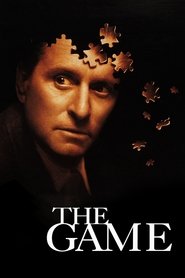The third act really doesn’t work well, especially the climax and the ending. It’s deflating.
Fincher has proved, with almost everything good he’s ever made, that anarchy is his only religion (see Fight Club, Seven, Zodiac, Social Network, Gone Girl — even Mank can be viewed through this lens). So it’s clear that he thinks Michael Douglas’ character is a butt hole. He gleefully rips this man’s life apart for nearly two hours. And it’s a great ride! Sure, this is the apex of 90s-style thriller flicks, but Fincher truly elevates the material above its station.
Then comes the ending. The whole “there is no twist; it’s really just a game” is equivalent to saying “they were dead the whole time” in Lost. It makes the journey meaningless, and it’s hard to believe in the personal growth we see after.
My pet theory is that Fincher actually wants us to think Douglas didn’t survive the fall at the end — that it’s all a dream sequence on the way to death. (There’s an alternate ending where Douglas leaves his birthday party and turns down a cab outside before it fades to black while Douglas walks into the darkness that kind of supports this theory, in my opinion.) The thing for me is, that ending makes more sense: Douglas’ redemption, at this point, his escape, is suicide. It’s lame and dark and silly in a “teenager writes an edgy script” sort of way, but the script wrote itself into a corner and Fincher can’t get out.
Everything up until the last 10 minutes is a fun little thrill ride from one of cinema’s most perverse voyeurs. I’m there for it.
